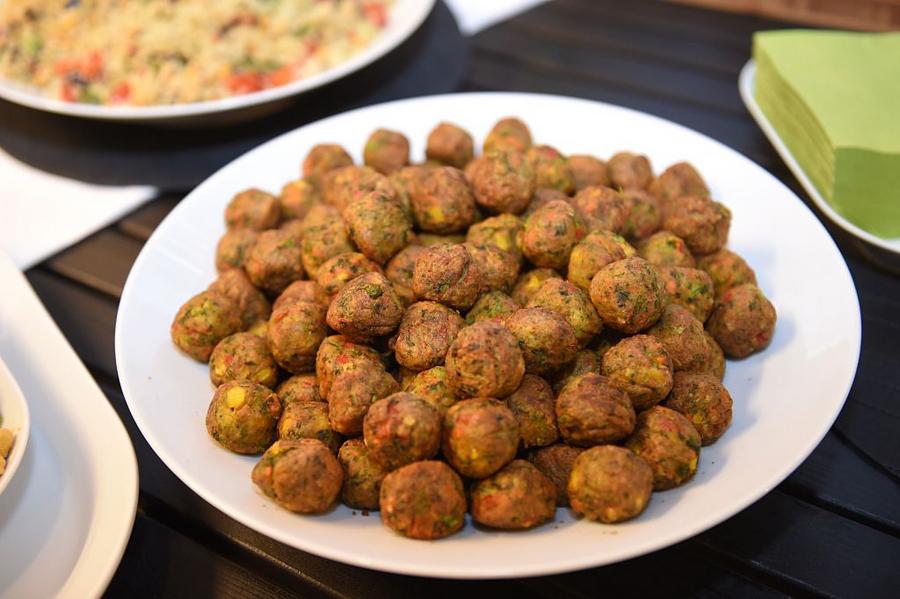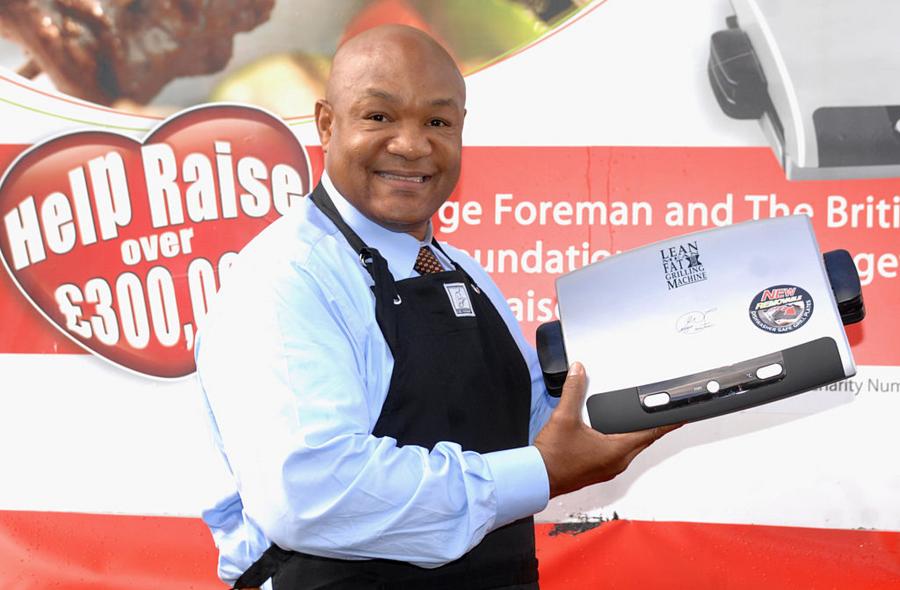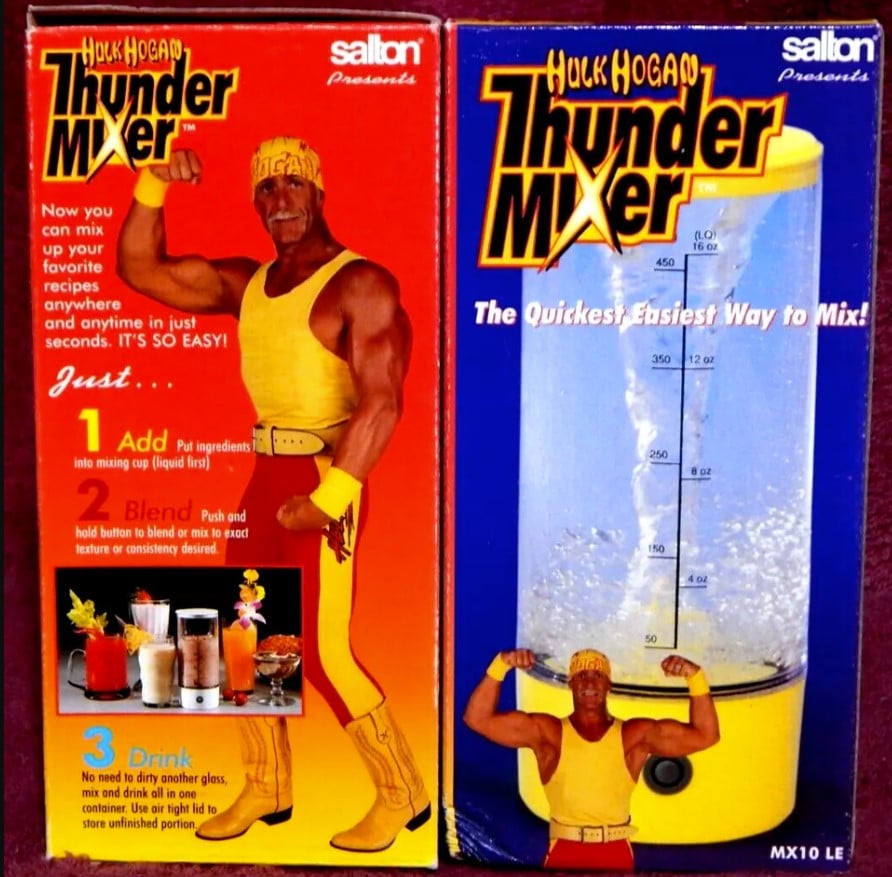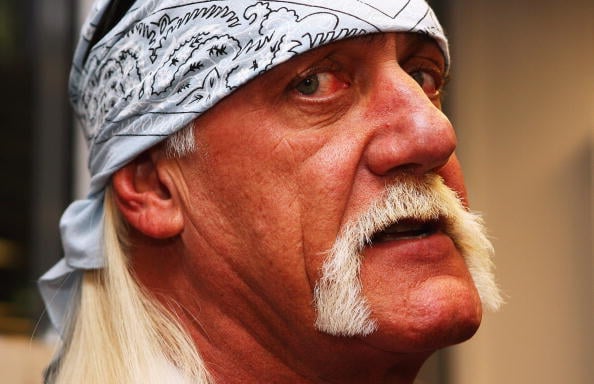Thirty years ago Hulk Hogan‘s agent came to him with an important opportunity. After a series of failed ventures, for example, a Florida restaurant called “Pastamania,” Hulk’s agent thought it would be a good idea to simply put his name on a physical product that he could endorse. Hulk was intrigued.
The agent presented Hulk with two products to choose from. The first product was an innovative new folding grill. The second product was a meatball maker.
Hulk chose the meatball maker. That would ultimately prove to be one of the worst business decisions ever…
Cameron Spencer/Getty Images
The Rise of Hulkamania
Hulk Hogan’s rise to wrestling stardom began in the late 1970s when he started competing in various regional promotions. His big break came in 1979 when he caught the eye of Vincent McMahon Sr. and joined the World Wrestling Federation (WWF, now WWE).
Hogan’s popularity exploded in the early 1980s, fueled by his charismatic personality, impressive physique, and signature moves like the leg drop. His catchphrases, including “Whatcha gonna do, brother?” and “Say your prayers and eat your vitamins,” became cultural touchstones.
The peak of “Hulkamania” occurred in the mid-1980s. Hogan’s victory over The Iron Sheik for the WWF World Heavyweight Championship in 1984 launched him into superstardom. His appearance in Rocky III and cartoon series further boosted his mainstream appeal.
The zenith of Hulkamania was arguably WrestleMania III in 1987, where Hogan defeated Andre the Giant before a record crowd of 93,173 fans. This event solidified Hogan’s status as wrestling’s biggest star and a pop culture icon.
At his peak, Hogan transcended wrestling, appearing in movies, TV shows, and commercials. He became a household name, inspiring millions of “Hulkamaniacs” worldwide and helping transform professional wrestling into a global entertainment phenomenon.
Diversifying His Empire
In the 1990s, Hogan began to diversify his empire. While continuing to wrestle off and on for New Japan, WCW, New World Order, WWF/E, and Total Nonstop Action, he also launched multiple business ventures. Unfortunately, not everything he worked on was successful. For example, his restaurant, Pastamania, failed after a year. It was around this time that Hulk’s agent approached him with the idea of endorsing a kitchen product.
Hulk met with his agent and was given three options for products to endorse:
- A grill
- A meatball maker
- A blender
According to an interview Hulk gave in 2011, this is exactly how the conversation with his agent went down:
Agent: “You should get into these things, kitchen appliances, put your name on something.“
Hulk: “Well, what have you got?“
Agent:”Well, I’ve got this meatball maker. It pounds the meatballs when you clench your arm muscles and press fists together.“
Hulk: “That’s fantastic, I want the Hulkamania Meatball Maker!“
Agent: “What about the other thing? The Grill?“
Hulk: “Ah, give that to your other client.“

(EMMANUEL DUNAND/AFP via Getty Images)
George Foreman was the agent’s other client.
George Foreman was technically retired from 1977 to 1987. He was forced out of retirement after blowing through his boxing fortune. By the time these product endorsement conversations were happening, George was in the midst of an incredible career resurrection. In November 1994, he regained the world heavyweight title AT THE AGE OF 45. He is the oldest person ever to win that title. His opponent, Michael Moorer, was 26-years-old. Foreman’s knockout punch was so hard it broke Moorer’s mouthguard in half.
George was well-known for eating two hamburgers prior to all of his matches. The boxing champion attributed his comeback to healthy eating habits, one of which included pouring off all of the fat created by any meat products he cooked.
For the makers of this newly proposed grill, Spectrum Brands (formerly known as Salton, Inc.), George Foreman turned out to be the perfect spokesperson. He agreed to let the company use his name and face to sell their fat-reducing grill. George also had some ideas about the design, which the company quickly implemented. The grill became known as the “George Foreman Lean Mean Fat-Reducing Grilling Machine,” but you probably know it more simply as the…
George Foreman Grill
In 1995, the Spectrum Brands marketing team rolled out a friendly, folksy, gently comedic ad campaign starring the boxer. Sales were actually slow at first. Only $5 million worth of grills were sold in 1996. By 1998, the grill was generating $200 million per year in revenue. The George Foreman Grill would go on to sell over 100 million units worldwide.
According to the terms of his initial deal, George Foreman was paid 60% of the profits generated by his grills. At his peak, he was making $8 million per month in royalties! In 1999, the makers of the grill realized that it would probably be smart to move away from a 60% royalty deal and instead pay George a big one-time lump sum. In the end, George was paid $137.8 million in cash and stock for the right to use his name and likeness in perpetuity worldwide.
Between his initial profit share and the $138 million buy-out, George Foreman personally pocketed more than $200 million from the grill.

(Photo by Rune Hellestad/Corbis via Getty Images)
What About The Meatball Maker?
For reasons that have been lost to history, perhaps due to embarrassment, the Hulk Hogan meatball maker never even came to fruition. But Hulk didn’t stop trying to achieve Foreman-level product endorsement success.
Hulk invested in and endorsed a line of microwaveable burgers and sandwiches that were sold at Walmart called “Hulkster Burgers.” He worked with the makers of the George Foreman Grill to create a blender called “Hulk Hogan Thunder Mixer.” He tried his hand at energy drink production with “Hogan Energy.” He even tried his own grill, the “Hulk Hogan Ultimate Grill.” Seemingly cursed, each of the products he invested in and endorsed disappeared without much fanfare. However, you can still find his Thunder Mixer blenders on eBay for around $12:

Worst of all, by 2009, personal troubles, a costly divorce, the financial crisis, financial mismanagement, and the failure of yet another product put Hulk being steps from bankruptcy. His finances eventually recovered, especially after he received a $31 million legal settlement from his successful defamation lawsuit against the website Gawker .
George Foreman meanwhile is living the good life with net worth of $300 million. Hulk, by comparison, is going to have to make do with a $25 million net worth.

